With summer fast approaching I thought I would share this information about the signs of dehydration.
Water is the most important liquid for the human body. With 2/3 of it made of water, a person can only survive about 72 hours without it. What makes water so important is that every cell, organ and tissue in the body depends heavily on it.
WHAT WATER DOES TO THE BODY
- It helps digestion.
- It controls calorie intake.
- It keeps the balance of body fluids in check.
- It regulates and maintains body temperature.
- It lubricates your joints and eyes.
- It protects your tissues, spinal cord and joints.
- It helps your body eliminate waste products and toxins.
- It keeps your skin hydrated and youthful.
As all body functions depend on water, proper hydration is the key to overall health. And in order to stay hydrated, it’s important to drink lots of fluids and eat foods high in water.
However, there are conditions when your body loses more water than usual. Some of these include hard physical activity, excessive sweating, diarrhea, vomiting, diabetes and frequent urination.
Dehydration can have a negative impact on your body function as it leads to an electrolyte imbalance.
Unfortunately, dehydration can often go unnoticed as most people are unaware of this condition. Knowing how to identify the symptoms of dehydration can help you take timely action and protect your health.
10 Warning Signs that Your Body is Lacking Water
These are the top 10 signs that you are water deficient:
1. Headaches and dizziness
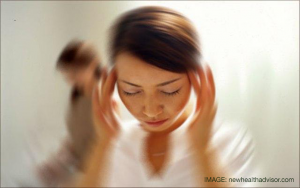 These are some of the first symptoms of dehydration because in this case, there’s a reduced amount of fluid surrounding your brain. This fluid is particularly important as it acts as a buffer protecting the brain from mild knocks.
These are some of the first symptoms of dehydration because in this case, there’s a reduced amount of fluid surrounding your brain. This fluid is particularly important as it acts as a buffer protecting the brain from mild knocks.
Along with migraines, dehydration leads to irritating headaches because it decreases the flow of oxygen and blood to the brain.
According to a 2010 report published in the Handbook of Clinical Neurology, dehydration is one of possible causes of migraines and severe headaches.
A glass can water, as opposed to pills, can be equally beneficial when dealing with a headache caused by dehydration.
2. Brain Fog or Poor Concentration
Not only does dehydration trigger headaches, but it also reduces brain function. As the human brain is almost 90% water, water deficiency in the brain can have a negative impact on your decision making skills, memory and mood.
Dehydration often manifests through symptoms of brain fog including forgetfulness and difficulty focusing, thinking and communicating.
According to a 2013 study published in Clinical Autonomic Research, dehydration is one of the most frequently reported causes of brain fog together with fatigue, sleep deficiency, and prolonged standing.
A different study
of 2011, published in the British Journal of Nutrition, revealed that dehydration can also lead to mood swings.
3. Bad Breath and Dry Mouth
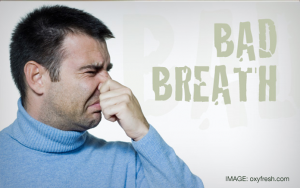 In a state of dehydration, your body produces less saliva, which has antibacterial properties. This leads to bad breath because there’s bacteria proliferation in the oral cavity.
In a state of dehydration, your body produces less saliva, which has antibacterial properties. This leads to bad breath because there’s bacteria proliferation in the oral cavity.
Another symptom is a dry mouth because water is a lubricant that keeps the mucus membranes in the throat hydrated, thus preventing dry mouth.
4. Constipation and other Digestive Issues
Water hydrates all cells and tissues in the body, which also applies to the digestive system. In fact, water keeps the gastro-intestinal tract supple and clean. Also, it stimulates regular your bowel movements and prevents constipation.
Constipation is a common symptom of dehydration leading to hardened stool due to excessive loss of fluid. Diarrhea and vomiting often lead to dehydration. This condition can even cause acid reflux and indigestion.
A 2003 study published in the European Journal of Clinical Nutrition reveals that proper hydration is the key to prevent constipation and maintain proper body function.
5. Sudden food cravings
People commonly mistake their need for water with food cravings. In fact, your body sends false signals to your brain that you are hungry, when actually you are thirsty. So, the next time you get a sudden food craving, drink a glass of water first before reaching for a snack.
Another reason why you feel hungry when actually thirsty is the fact your body is craving salty food when you’re experiencing loss of water and electrolytes. You can easily address this issue by drinking a sports drink that contains sodium, or by mixing some fresh lemon juice, a glass of water and a teaspoon of salt.
When there’s glycogen production difficulty in your body, you also experience sweet cravings. In this case, reach for fruits like watermelon, papaya or berries, which are not only sweet, but also high in water.
6. Reduced need for urination and change in urine color
If you don’t have the need to urinate every few hours, your body may be experiencing dehydration. When you are getting enough water, you should be going to the toilet about 4-7 times a day. If, however, you don’t, the toxin levels in your body increase.
Another thing that dehydration does is change the color of your urine, which is an important indicator of how well hydrated you are. When your body is well-hydrated, the color of your urine is clear or light, whereas dark yellow or amber-colored urine is a clear sign of dehydration.
7. Fatigue and Lethargy
Dehydration also makes you feel fatigued and lethargic. As your brain is lacking water, this causes low blood pressure and inadequate oxygen supply throughout your body. This in turn leads to sleepiness, fatigue and a lethargic feeling.
Dehydration also negatively affects the transport of essential nutrients to every cell in the body. In fact, your body works very hard to sustain this, spending more energy than usual, thus making you feel constantly tired.
Keeping hydrated is the easiest way to stay alert and full of energy.
8. Joint and Muscle Pain
Your joints and cartilage are made of 80% water, so whenever you’re lacking this fluid, it increases friction between your bones, which leads to joint pain. In contrast, when your body is well-hydrated, your joints can handle sudden movements, such as running, jumping or falling, without any pain.
Water deficiency also results in muscle spasms and cramps.
9. Scaly, Dry Skin and Lips
Dry skin is another issue that dehydration triggers because it leads to lack of elasticity. Your skin is the largest organ, which need a lot of water to stay in good health.
Moreover, low water levels cause less sweating, thus preventing the body from effective elimination of excess dirt and oil built up on your skin. Dehydration also increases the risk of acne, eczema and psoriasis as water stimulates flushing toxins out from the body.
Dry and chapped lips are another common sign of dehydration.
Make sure you maintain proper body hydration and good skin quality by drinking sufficient amounts of water.
10. Accelerated Heartbeat
Last, but not least, proper hydration influences your heart rate and performance. Dehydration makes the blood more viscous and reduces plasma volume, which affects blood circulation and increases your heart rate. This was confirmed by a 2014 study published in the Journal of Strength & Conditioning Research.
The researchers found that the heart rate changes an average of three beats per minute for every 1 percent change in body weight resulting from dehydration.
In addition, dehydration not only leads to hypotension, but also causes changes in electrolytes levels in your body. This makes heart palpitations become faster due to extra stress on your body. This can often be frightening and cause anxiety and panic.
In such a case, sip water slowly to see if you’ll feel better and feel if your heart will beat faster. If the problem persists, consult a doctor.
Tips to Prevent Dehydration:
- Drink plenty of water on daily basis. The amount of water you need depends on a number of factors, including the climate where you live, your physical activity and overall health.
- Always start your day with a large glass of water at room temperature and drink one full glass before each meal.
- It’s recommended to even set a reminder to drink a glass of water a few times a day if you are busy and often forget to drink water.
- Always carry a bottle of water with you no matter where you are going.
- Increase your intake of water-rich fruits and vegetables on regular daily basis.
- Stay away from drinks that cause dehydration, such as alcohol, energy drinks and those with caffeine.
- When suffering from a fever, vomiting or diarrhea, increase your fluid intake to prevent severe dehydration.
- Consult your doctor if you are having symptoms such as extreme thirst, dizziness, not passing urine for more than eight hours, and a rapid or weak pulse.
The original story by Healthy Food Team can be found here.. www.healthyfoodteam.com/10-warning-signs-that-your-body-is-lacking-water/

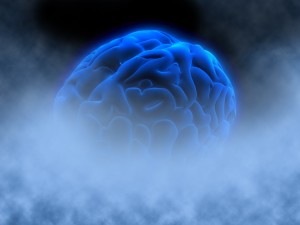
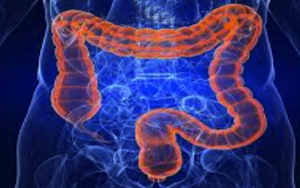

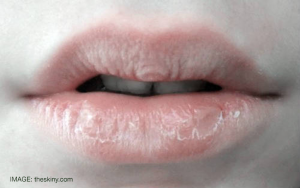
Leave a Reply